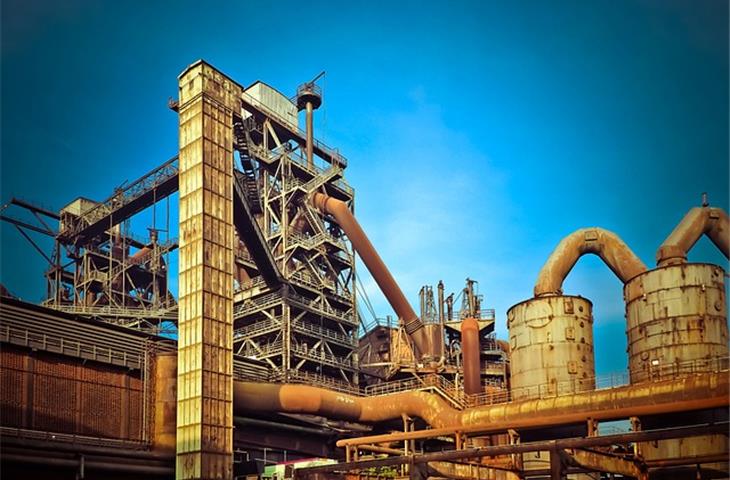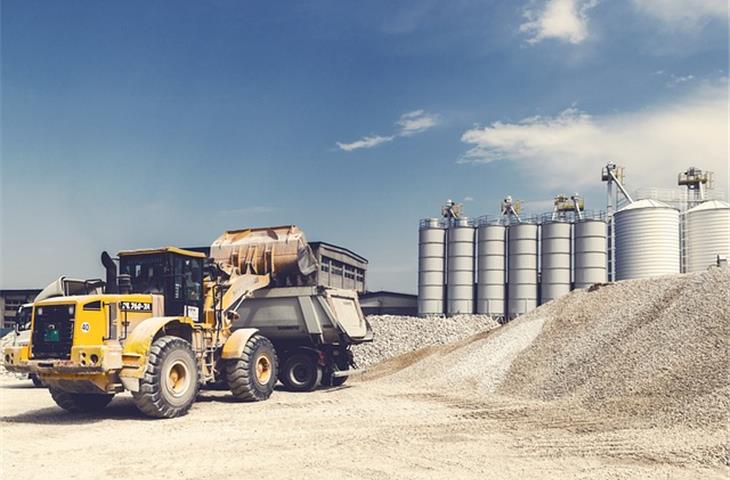“Industrial locks serve as paramount components in security and access control architecture.” These formidable systems are ingeniously crafted to bolster security levels in industrial milieus, where consequences ensuing from theft or illicit entry are hefty possibilities. In the forthcoming guide, we’ll unravel the subtleties of industrial locks, elucidating their significance, diverse categories, and the pivotal considerations shaping their design and performance. Upon completion, you’ll possess a comprehensive comprehension of these indispensable security instruments and their role in fortifying industrial domains.
Classification of Industrial Locks

1. Deadbolt Locks

Deadbolt locks, a preferred type amongst industrial locks, incorporate a cylindrical bolt that retracts into the doorframe upon locking, rendering them virtually impregnable to picking or destruction. Capsule shapes and locking arrangements vary widely; they encompass key-activated, keyless, and electronic entities.
2. Padlocks

Padlocks are adaptable and resilient, rendering them optimal for securing gates, storage units, and assorted appliances. Their fabrications include brass, steel, and aluminum, and they’re available in distinct modes: keyed alike, keyed different, or combination locks.
3. High-Security Locks
High-security locks are engineered to resist sophisticated picking and bumping tactics. These locks frequently incorporate distinctive features like a flat steel insert, fortified housing, and a unique key configuration to offer maximum resistance against tampering.
4. Electronic Locks
Electronic locks are gaining traction in industrial settings owing to their convenience and versatility. These locks can be manipulated through keypads, card readers, biometric scanners, or mobile devices, and can effortlessly interface with access control systems for heightened security.
Requirements and Obstacles
Industrial locks ought to exhibit exceptional durability and robustness against tampering, inclement weather conditions, and physical maltreatment. This prerequisite guarantees that the locks can endure the strenuous conditions of a bustling industrial atmosphere.
2. Adaptability
Industrial locks ought to be flexible enough to cater to diverse applications, encompassing doors, gates, cabinets, and other apparatus. This adaptability permits a singular lock to fulfill multiple security necessities within an industrial context.
3. User-Friendliness
The design of industrial locks should prioritize user-friendliness for authorized personnel, concurrently offering a high degree of security against unauthorized access. This equilibrium ensures that locks are pragmatic and efficacious in their designated function.
4. Interoperability with Access Control Systems
The demand for integrating industrial locks with access control systems is escalating, as enterprises aim to streamline their security protocols and augment overall protection. This integration necessitates compatibility with various access control technologies and platforms.
Role of Industrial Locks in Industrial Security
Industrial locks perform a critical role in fortifying industrial environments, safeguarding invaluable assets, and preserving the sanctity of business operations. By addressing the prerequisites and obstacles linked to industrial security, these locks furnish a robust and dependable solution to the necessity for access control and protection against theft and vandalism.
1. Asset Protection
Industrial locks guarantee that precious equipment, materials, and property are shielded from theft and unauthorized utilization. This is especially crucial in sectors where asset depletion could precipitate substantial financial and operational repercussions.
2. Employee Safety
By regulating access to sensitive zones and equipment, industrial locks contribute to the safety of employees and guests. This mitigates accidents and injuries resulting from unauthorized access or operation of hazardous machinery.
3. Business Continuity
Robust security measures, inclusive of industrial locks, are fundamental for sustaining business continuity. By averting disruptions instigated by theft or unauthorized access, businesses can persistently operate seamlessly and efficiently.
4. Legal and Regulatory Compliance
In numerous industries, there exist legal and regulatory stipulations for securing facilities and equipment. Industrial locks assist businesses in meeting these obligations, ensuring adherence to pertinent laws and standards.
In summation, industrial locks are indispensable instruments for securing industrial environments, protecting assets, and preserving business operations. By comprehending the classifications of industrial locks, the prerequisites and obstacles associated with their design and functionality, and their role in industrial security, businesses can make judicious decisions concerning the procurement and deployment of these vital security solutions.
 logo
logo